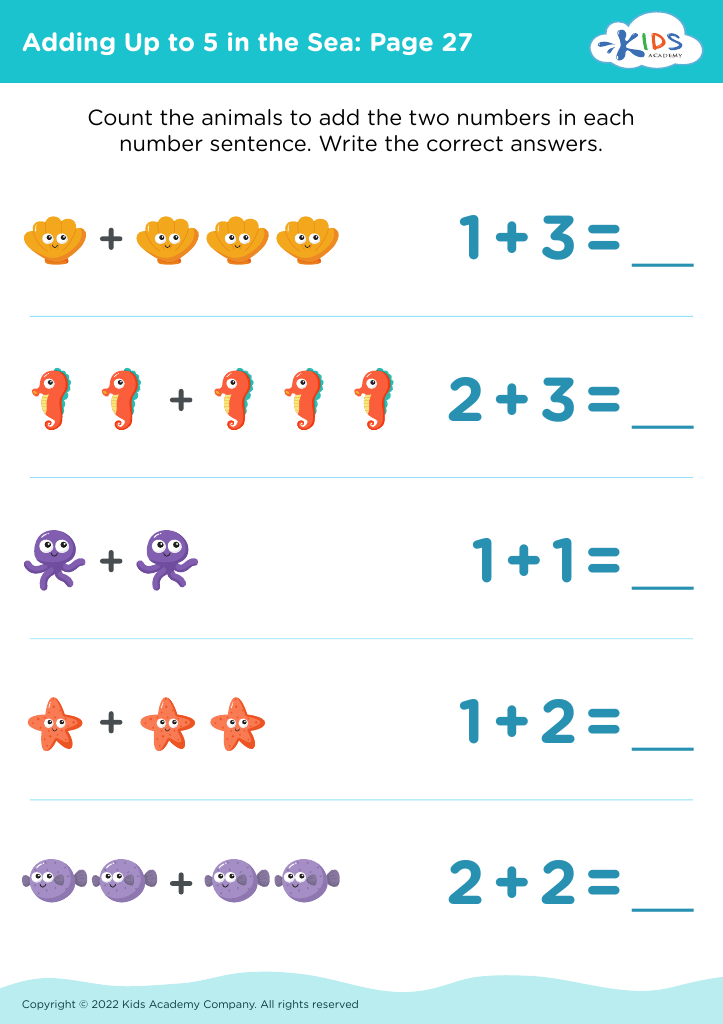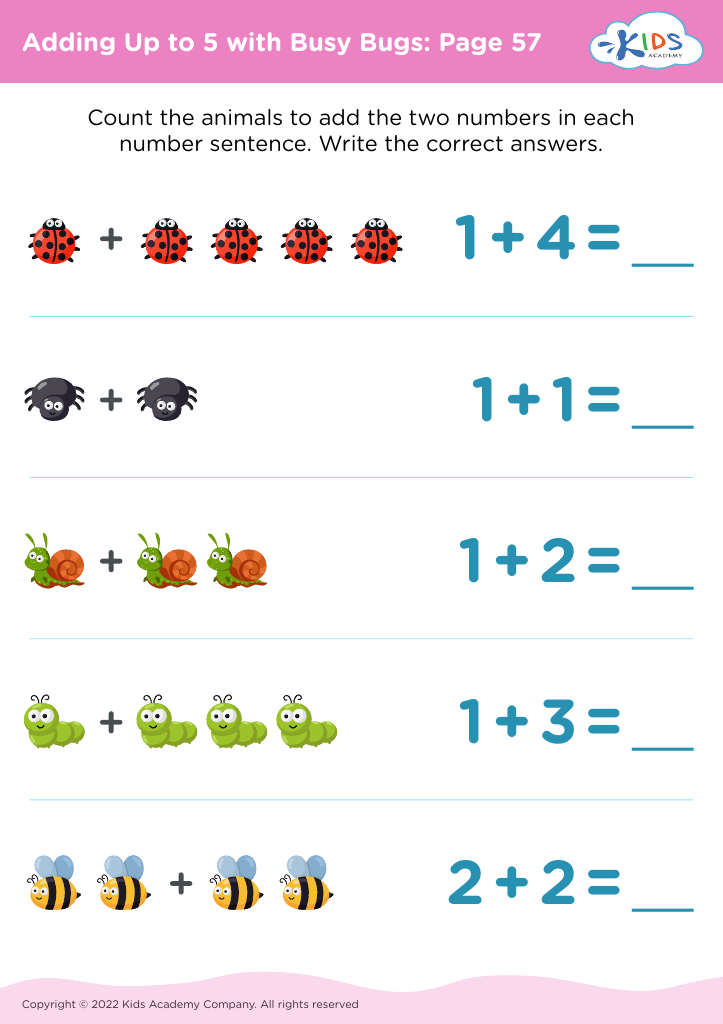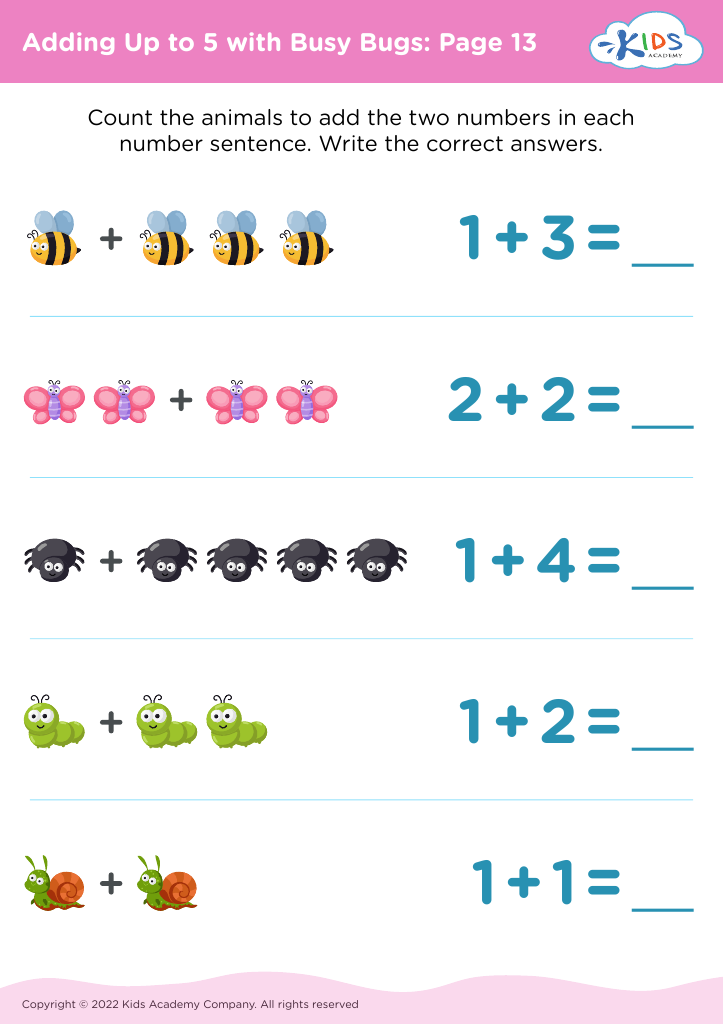Understanding numbers Addition Worksheets for Ages 4-6
3 filtered results
-
From - To
Enhance your child's mathematical skills with our "Understanding Numbers Addition Worksheets" designed specifically for ages 4-6. These engaging and colorful worksheets provide a fun, interactive way for young learners to grasp the fundamental concepts of addition and number recognition. Each activity is tailored to promote critical thinking and problem-solving while reinforcing essential skills such as counting and number comparison. Perfect for homeschooling or classroom use, our worksheets foster a love for math through playful exercises and visual aids. Start your child's mathematical journey today and watch them gain confidence and enjoyment as they learn to add! Download now and inspire learning!
Understanding numbers and addition is foundational for early learners aged 4-6. At this age, children are naturally curious and eager to explore mathematical concepts, making it a prime time to instill positive attitudes towards math. Parents and teachers should care about this development for several key reasons.
Firstly, mastering numbers and addition helps children build critical problem-solving skills. These skills are essential not only for math but also for everyday situations, such as managing time and understanding routines. Secondly, engaging with numbers fosters cognitive development and enhances spatial awareness, laying the groundwork for more complex mathematical understanding in the future.
Moreover, a solid grasp of basic addition promotes confidence in young learners. When children feel competent in their skills, they are more likely to participate in classroom activities and expressive learning. This confidence can lead to greater success across subjects, as math is interwoven with many aspects of learning.
Finally, an understanding of numbers encourages collaboration and social interaction during group activities. Parents and teachers can create a supportive environment where children share ideas, solve problems together, and develop communication skills, all of which are vital for holistic development. Investing time in understanding numbers and addition is, therefore, crucial for fostering well-rounded, confident learners.







.jpg)
















